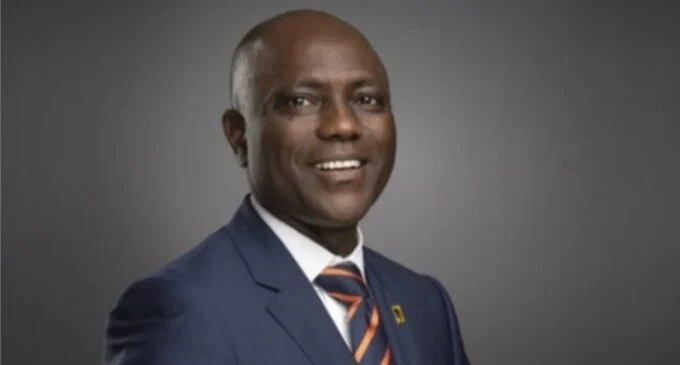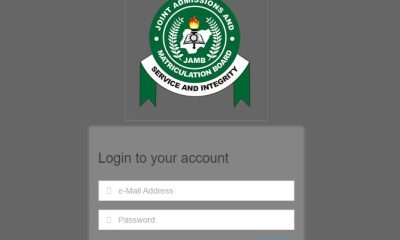Business
Dangote named ‘richest man in Africa’ — 11th consecutive time

Aliko Dangote, president of Dangote, has been named Africa’s richest person — with a net worth of $13.9 billion – up from $12.1 billion last year.
Forbes, an American business magazine, said this in its latest report on Africa’s 2022 billionaires released on Monday.
Forbes said that the continent’s 18 billionaires were worth an estimated $84.9 billion ––a 15% increase from 2021.
The worth is the highest value since 2014 — when 28 billionaires were worth a combined $96.5 billion.
“As a group, the continent’s 18 billionaires are worth an estimated $84.9 billion – a 15% increase from twelve months ago and the most since 2014, when a larger number of billionaires–28–were worth a combined $96.5 billion,” the report said.
“On average, the continent’s billionaires are worth $4.7 billion now vs $3.4 billion in 2014.
“Soaring stock prices from Nigeria to Zimbabwe lifted the fortunes of these tycoons, as demand for products from cement to luxury goods ticked up.”
According to Forbes, the increase in Dangote’s monetary value resulted from the 30 percent increase in the stock price of Dangote Cement.
Business
Dubai airports back in operations, after 400 flight cancellation over flood

Emirates Airlines, in conjunction with FlyDubai, has resumed its regular flight operations from Dubai International Airport, marking a pivotal moment in the restoration of normalcy following the recent disruptions.
The decision on flight resurgence was finalised on Saturday, April 20, 2024, after the unprecedented rainfall, resulting in significant flooding across the city, inflicted substantial challenges on Dubai International Airport, disrupting flight schedules and causing numerous cancellations and delays.
Emirates Airlines, the largest carrier at the airport, bore the brunt of the impact, with approximately 400 flights cancelled, exerting strain on passengers and airport infrastructure.
Tim Clark, President of Emirates, acknowledged the gravity of the situation, highlighting the formidable obstacles presented by the adverse weather conditions. The inundation prompted Emirates and FlyDubai to temporarily halt check-in and transit services at Dubai International Airport, leaving thousands of travelers stranded amidst the chaos.
Speaking via a statement in his open letter addressed to passengers, Clark recognized the frustration stemming from congestion, lack of information, and confusion within the terminals.
“Most sincere apologies to every customer who has had their travel plans disrupted.” With the airport struggling to manage the aftermath of the flooding, hundreds of thousands of passengers found themselves stranded, exacerbating the challenges faced by Emirates, the world’s busiest international aviation hub.
“We acknowledge and understand the frustration of our customers due to the congestion, lack of information, and confusion in the terminals.
“We acknowledge that the long queues and wait times have been unacceptable.”
Business
How to boost your bank account, mobile wallet security

Cybercriminals are constantly devising new ways to exploit vulnerabilities and steal sensitive information. DANIEL ADAJI outlines ways to safeguard your bank account and mobile wallet.
In today’s rapidly evolving digital landscape, the importance of robust mobile wallet security cannot be overstated. With the surge in the use of digital wallets, there has been a corresponding increase in the activities of cybercriminals, who are constantly on the lookout for vulnerabilities to exploit. The convenience offered by these digital payment methods is undeniable, but it also presents a lucrative target for those with malicious intent.
The stories are all too common: unsuspecting individuals falling prey to sophisticated scams, resulting in the loss of significant sums of money. These criminals employ a variety of tactics to breach digital defences, often capitalising on the smallest oversight in security practices.
It is a stark reminder that in the digital realm, our financial well-being is perpetually at risk from those who wish to unlawfully enrich themselves.
It is imperative, therefore, that each individual take proactive steps to safeguard their digital assets. This begins with a thorough understanding of the potential risks associated with digital transactions and extends to the implementation of strong security measures. Regularly updating passwords, enabling two-factor authentication, and monitoring account activity are just a few of the many actions that can significantly enhance security.
Moreover, staying informed about the latest security threats and understanding the common tactics used by cybercriminals can provide an additional layer of protection. Education on digital safety should be ongoing, as the methods used by these criminals are constantly evolving. Being vigilant and cautious with every transaction, no matter how small, is essential.
In essence, while technology companies and financial institutions strive to fortify their systems against unauthorised access, the onus of digital safety ultimately falls on the user. It is a personal responsibility that must be taken seriously, for the repercussions of neglect can be dire.
By adopting a mindset that prioritises security, individuals cannot only protect their financial interests but also contribute to the overall safety of the digital ecosystem.
As we embrace the convenience of digital wallets, we must also embrace the responsibility that comes with it. Vigilance, education, and the implementation of robust security practices are the pillars upon which the safety of our digital finances rests.
It takes collective effort that starts with individual action. Only through such concerted efforts, we can hope to stay one step ahead of those who seek to cause harm in the digital world.
Your digital safety is not only a right but also a responsibility that you have towards yourself and others.
To keep your digital wallets safe, follow these essential security practices:
Use strong passwords
Create unique, complex passwords for each financial account. Avoid using easily guessable information like birthdays or common phrases. A strong password typically includes a mix of uppercase and lowercase letters, numbers, and special characters.
Enable two-factor authentication
Whenever possible, enable 2FA for your accounts. This adds an extra layer of security by requiring a second verification method (such as a text message or authentication app) in addition to your password.
Regularly monitor your accounts
Check Your Statements
Review your bank and credit card statements regularly. Look for any unauthorised transactions or suspicious activity. Report discrepancies immediately to your financial institution.
Set Up Alerts
Most banks and mobile wallet apps allow you to set up transaction alerts. Receive notifications for large withdrawals, international transactions, or any other unusual activity.
Update software
Keep your operating system, apps, and security software up to date. Updates often include patches for known vulnerabilities.
Install antivirus software
Use reputable antivirus software to protect against malware and phishing attacks. Regularly scan your devices for threats.
Lock your devices
Set up a PIN, password, or biometric lock (such as fingerprint or face recognition) on your smartphone and other devices. This prevents unauthorised access.
Be cautious online
Avoid public Wi-Fi for sensitive transactions
Public Wi-Fi networks are vulnerable to interception. Avoid conducting sensitive financial transactions while connected to public Wi-Fi.
Beware of phishing emails and texts
Cybercriminals often impersonate banks or financial institutions via email or text messages. Be sceptical of unsolicited messages asking for personal information or urging urgent action.
Use trusted apps and websites
Download Apps from Official Stores: Only download banking and wallet apps from official app stores (such as Google Play or the Apple App Store). Avoid third-party sources.
Check Website URLs
Before entering any sensitive information, verify that the website’s URL begins with “https://” (the “s” stands for secure). Look for the padlock icon in the address bar.
Secure your mobile wallet
Set up biometric authentication
If your mobile wallet supports it, enable biometric authentication (fingerprint or face recognition). This adds an extra layer of security.
Regularly review transactions
Check your mobile wallet transactions frequently. Report any unauthorised charges promptly.
Business
First Bank appoints Olusegun Alebiosu as acting CEO

Olusegun Alebiosu has been appointed as the acting chief executive officer (CEO) of First Bank of Nigeria (FBN) Limited after the resignation of Adesola Adeduntan.
Adeduntan resigned on April 20, eight months before his contract ended.
He was appointed as CEO in 2016.
In a statement on Sunday, FBN Holdings, the parent company of the lender, said Alebiosu’s appointment takes effect immediately and is subject to the approval of the Central Bank of Nigeria (CBN).
Alebiosu joined FirstBank in 2016 and was the executive director and chief risk officer prior to his appointment.
With over three decades of banking experience, FBN Holdings said Alebiosu is well-placed to deliver on the bank’s strategic objectives.
“Segun brings to the Executive Management of FirstBank over 28 years’ experience in the banking and financial services industry with cross-functional exposure to Credit risk management, Financial planning and control, Credit and marketing, Trade, Corporate and commercial banking, Agriculture financing, 011 and Gas, Transportation (including Aviation and Shipping) and Project financing,” FBN Holdings said.
“He commenced his professional career in 1991 with Oceanic Bank Plc. (now EcoBank Plc.) and prior to joining FirstBank in 2016 served as Chief Risk Officer at Coronation Merchant Bank Limited, Chief Credit Risk Officer at African Development Bank Group and Group Head, Credit Policy & Deputy Chief Credit Risk Officer at United Bank for Africa Plc.
“Segun is an alumnus of Harvard School of Government and holds a bachelor’s degree in Industrial Relations and Personnel Management. He also obtained a master’s degree in International Law and Diplomacy from the University of Lagos and holds a master’s degree in Development Studies from the London School of Economics and Political Science.”
FBN Holdings said Alebiosu is a member of various professional bodies; a fellow at the Institute of Chartered Accountants (FCA), an associate at Nigeria Institute of Management (ANIM), Chartered Institute of Bankers of Nigeria (CIBN) and a member of Nigeria Institute of International Affairs.
-

 Education1 week ago
Education1 week agoPrinting of JAMB slip: Beware of fake sites, police warn 2024 UTME candidates
-

 Entertainment6 days ago
Entertainment6 days agoJUST IN: Cubana Chief Priest pleads not guilty to naira abuse charge
-

 Business7 days ago
Business7 days agoX will start charging new users to post, says Elon Musk
-

 Entertainment6 days ago
Entertainment6 days agoCubana Chief Priest arrives court for naira abuse trial
-

 Health1 week ago
Health1 week agoFive benefits of drinking Okra water
-

 Celebrities6 days ago
Celebrities6 days ago‘Not see you for 6 months, impossible’ — Davido reacts to Cubana Chief Priest’s bail
-

 Business4 days ago
Business4 days agoElon Musk threatens to suspend X accounts doing engagement farming
-

 Health1 week ago
Health1 week agoSymptoms, risk factors, treatment — what to know about throat cancer


















